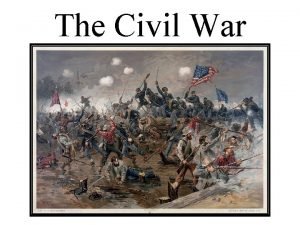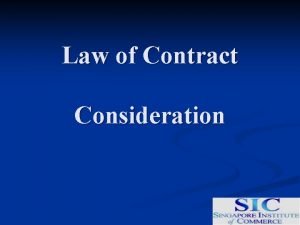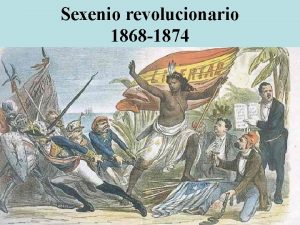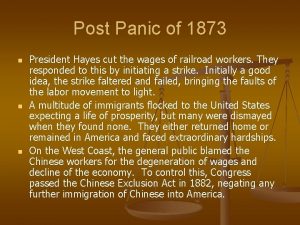End Of Reconstruction 1 Panic of 1873 Northerners










- Slides: 10

End Of Reconstruction

1. Panic of 1873 • Northerners were growing tired of it • The panic created other problems to worry about • Created economic problems that weakened Republican control • Pressure on Congress to bring it to an end.

Democratic Platform Election of 1876 Republican Platform Tilden: 184 Hayes: 166 Disputed: 19 FTW: 185 1868 1872 1876

2. 2. Election of 1876 • Ends in a tie • Goes to the House of Representatives and still a tie • Congress creates a commission to determine winner • Deal struck with the South • Let Rutherford B. Hayes take the presidency and they will end Reconstruction

3. Compromise of 1877 • Puts Hayes into the presidency • Removes military troops from the South • THIS ACTION SIGNALS THE END OF RECONSTRUCTION FOR THE SOUTH.

“Redeemer” Governments Southern White “Bourbon” Democrats re-assert authority “Solid South” – DEMOCRATIC STRONGHOLD • Republican Party a non-entity in Southern politics until the 1960 s Gov. Wade Hampton (SC)

The “Solid South” Almost 50 Years Later

Jim Crow “Jim Crow” Laws Racial Segregation and Voting Restrictions Literacy Tests Poll Tax Designed to keep Black citizens from voting Grandfather Clause

The Supreme Court and Civil Rights (Late Nineteenth Century) In the late 19 th century, the Supreme Court upheld Jim Crow, as well as restrictions on voting (since these restrictions did not explicitly discriminate based on race).

Plessy v. Ferguson • Louisiana Racial Segregation Case • “Separate But Equal” • MAKES SEGREGATION LEGAL • Overturned by Brown v. Board (1954) 14 (1896)



















